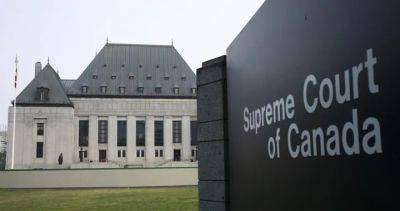Canada broke its treaty promise, but Blood Tribe is barred from suing, Supreme Court rules
Canada acted dishonourably by breaking its treaty obligations to the Blood Tribe in Alberta but the band is barred from suing by the province's statute of limitations, the Supreme Court of Canada has ruled.
The high court on Friday handed down a unanimous decision in Jim Shot Both Sides v. Canada, a case that may impact the ability of First Nations countrywide to sue the Crown for historic treaty violations.
Justice Michelle O'Bonsawin, writing for the court, declared Canada's historic double dealing was «deplorable,» but that the Blood Tribe failed to sue within the mandatory time frame.
The claim revolved around Canada's admitted failure to set aside reserve lands for the band, also known as Kainai Nation, part of the Blackfoot Confederacy, about 200 kilometres south of Calgary.
The Blood Tribe were signatories to Treaty 7 in 1877 but long alleged the size of their reserve didn't match the treaty promise. They eventually sued Canada in 1980 alleging dishonourable conduct, fraudulent concealment and negligence.
The case turned, however, on the narrow issue of whether the claim was barred by Alberta's statute of limitations, the time period in which lawsuits can be filed, which in this case was six years.
The misconduct was discovered by a Blackfoot researcher in 1971. If the clock began ticking then, the claim was barred by 1980. If the clock began ticking in 1982 when Canada's Constitution recognized and affirmed treaty and Aboriginal rights, it could proceed.
A Federal Court trial judge found the clock started ticking in 1982 and upheld the treaty-land entitlement claim. The Federal Court of Appeal reversed the ruling and blocked the suit.
The Blood Tribe appealed to the high court, which allowed the appeal in part.







